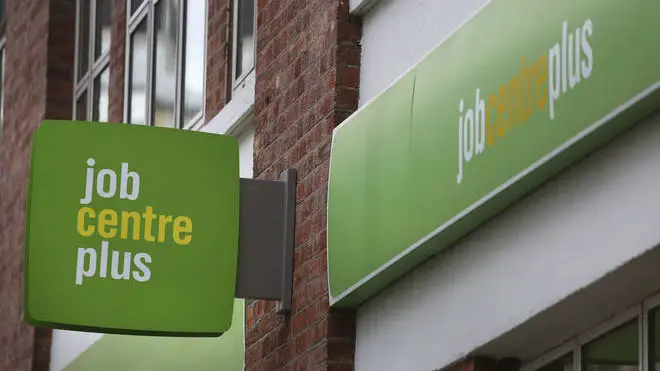
James O'Brien 10am - 1pm
16 June 2020, 07:14

The number of workers on payrolls across Britain fell by more than 600,000 between March and May as lockdown hit the labour market, according to the Office for National Statistics (ONS).
The UK unemployment rate for the three months to April 2020 was estimated at 3.9 per cent with an employment rate of 76.4 per cent, with coronavirus furloughed workers counting as employed.
Opposition MPs have warned unless the Government acts the UK could face mass unemployment "on a scale not seen for decades once the furlough scheme is withdrawn."
The ONS said early estimates showed the number of paid employees dropped by 2.1 per cent or 612,000 in May compared with March.
The number of people temporarily away from work, including furloughed workers, rose by six million at the end of March into April.
The ONS said jobless claims under Universal Credit jumped 23.3 per cent month-on-month in May to 2.8 million and soared 125.9 per cent or 1.6 million since March when the UK was placed in lockdown.
Dave Innes, Head of Economics at the Joseph Rowntree Foundation said it was concerning that the number of people in work was falling, especially as the country could be heading into a recession.
Mr Innes said: “Today’s figures show that the furlough scheme has successfully kept millions of businesses and workers afloat during lockdown. But as we enter a deep recession there are worrying signs that the number of people in work are falling. It is especially concerning that sectors with high levels of in-work poverty before the crisis, like food and accommodation, have been hit hardest.
“As the furlough scheme begins to unwind it is vital that the Government focuses its attention on avoiding a second wave of unemployment. That should include creating jobs, particularly in places that have seen the biggest increases in unemployment, as well as giving people opportunities to gain new skills to help them navigate a rapidly changing jobs market. Alongside this, the Government should also boost benefits so that people are not pulled into poverty if they lose their jobs.

Shadow Work & Pensions Secretary urges PM to borrow over unemployment
Jonathan Reynolds, Labour’s Shadow Work and Pensions Secretary said: "These numbers show that unless the Government acts, the UK is likely to face mass unemployment on a scale not seen for decades once the furlough scheme is withdrawn.
“The Government has been slow at every stage of this crisis - they cannot afford to be slow again in responding to this threat.
He said there must be "urgent action" from the Government to help the hardest-hit regions and specific support for sectors "particularly exposed to the nature of the Covid crisis."
"It must prevent additional unemployment, support those who become unemployed and enable the creation of new jobs. This is why Labour is calling for a Back to Work Budget that has one focus – jobs, jobs, jobs," Mr Reynolds said.

Chancellor Rishi Sunak says firms will be asked to make furlough contributions from August
Jonathan Athow, the deputy national statistician for economic statistics at the ONS, said: "The slowdown in the economy is now visibly hitting the labour market, especially in terms of hours worked.
"Early indicators for May show that the number of employees on payrolls were down over 600,000 compared with March.
"The Claimant Count was up again, though not all of these people are necessarily unemployed."
He added: "More detailed employment data up to April show a dramatic drop in the number of hours worked, which were down almost 9% in the latest period, partly due to a six million rise in people away from work, including those furloughed."
Listen & subscribe: Global Player | Apple Podcasts | Google Podcasts | Spotify
As we reported in May, unemployment increased by 50,000 to 1.35 million in the three months to March with the lockdown described as having a "major impact".
The latest job loss data comes as the Government starts to wind down the coronavirus furlough scheme which has seen the state pay the wages of more than eight million workers.
Mr Sunak acknowledged further redundancies were inevitable and said that it underlined the importance of getting the economy going again.
"Primarily we need to reopen our economy safely and slowly. That is the most important thing to try and safeguard as many of those jobs as possible," he told The Andrew Marr Show.
"There is going to be hardship ahead. People are going to lose their jobs."